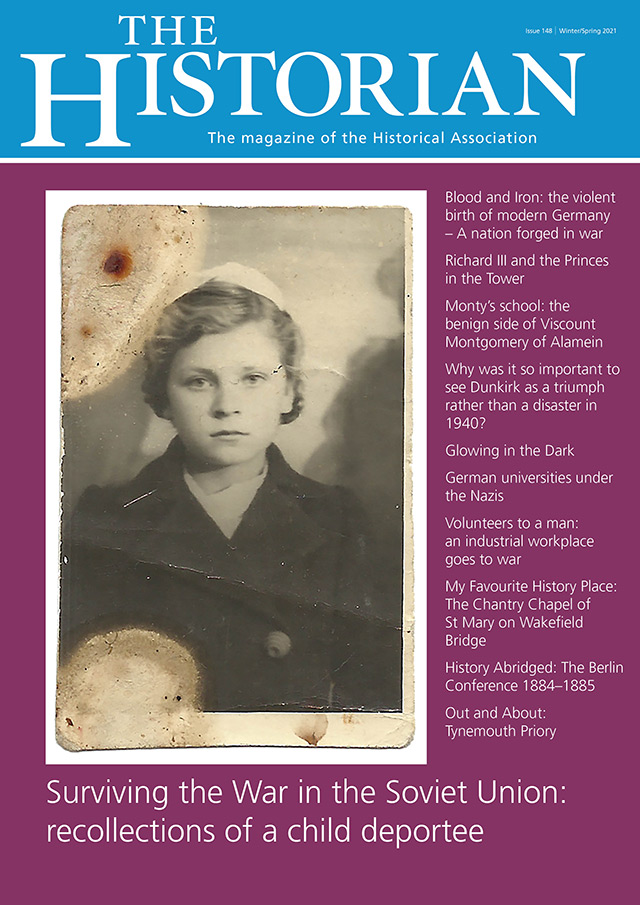The Historian 148: Out now
The magazine of the Historical Association

Editorial: Legacy of war
How many times are we all going to write ‘it’s been an odd year’? – I know I have now written it many times, yet it has affected schedules and output here at the HA. So I am very sorry that this edition of The Historian is later than planned but hopefully everything will get back to an even keel soon. Although it is late it is an edition that looks at the way people or key events can have an impact on others and leave a legacy that keeps on running – which is quite a topical theme. That wasn’t the case when we first came up with it, at that point myself and the rest of the editorial board were interested simply in how events can have a an effect on other events that might not seem tightly related or relevant at the time. Now the way that things can have a ripple effect and legacies is something we may well be discussing for some time.
Which leads us all to reflect on what actions or decisions of the last 12 months are going to leave legacies for many years to come. How will the small actions of individuals as well as the big picture elements result in changes to society now and in the future? These are more the questions for those who study philosophy perhaps but as studiers of history we can also use them to observe and record the world as we move into the next period of change.
In the article about Richard III we are asked some of the key questions about what we actually know about his reign, about his motivations as well as how he has been represented since that time. Studying history is about re-examining the past as well as recording it and retelling it and returning to topics such as Richard III is important to understand how different generations have used his reign for their own purposes as well reminding us that we may not know as much as we think about seemingly familiar historical subjects.
The article about the women who stood against business in the US and subsequently made more people, including scientists, aware of the dangers of Uranium did so to protect other workers from suffering their fate. Yet their actions helped to ensure that millions of Americans today have protection in their workplace.
In Real Lives there is the story of the horrific ways in which ordinary people were treated and still managed to survive, a message of resilience from the past – though very different from the situations that some are facing today.
In the recent HA News there was an article about how the HA staff have lived and managed during the lockdowns. It was noticeable that no-one appeared to have become an expert in sourdough bread-making, proficient in Mandarin or a social influencer; instead it was all about working at kitchen tables, managing home schooling or moving house: life altered but continued. As office working practices changed in ways we would never have considered before 2020 and they won’t completely go back to ‘normal’ even if the route out of lockdown does proceed as promised – will that be for the better or not – hmmmm? Maybe the historians of the future can debate that – if indeed you kept a diary, wrote a blog or answered one of the many surveys asking how your life has changed, otherwise how will they know?
In some ways this is an eclectic edition but it is one that presents some interesting ways to examine history as well as shedding light on less well known episodes or people. It is a reminder that events change lots of people’s lives in ways that are not always predicted, frequently unrecorded and always in ways you just couldn’t predict. Enjoy.

